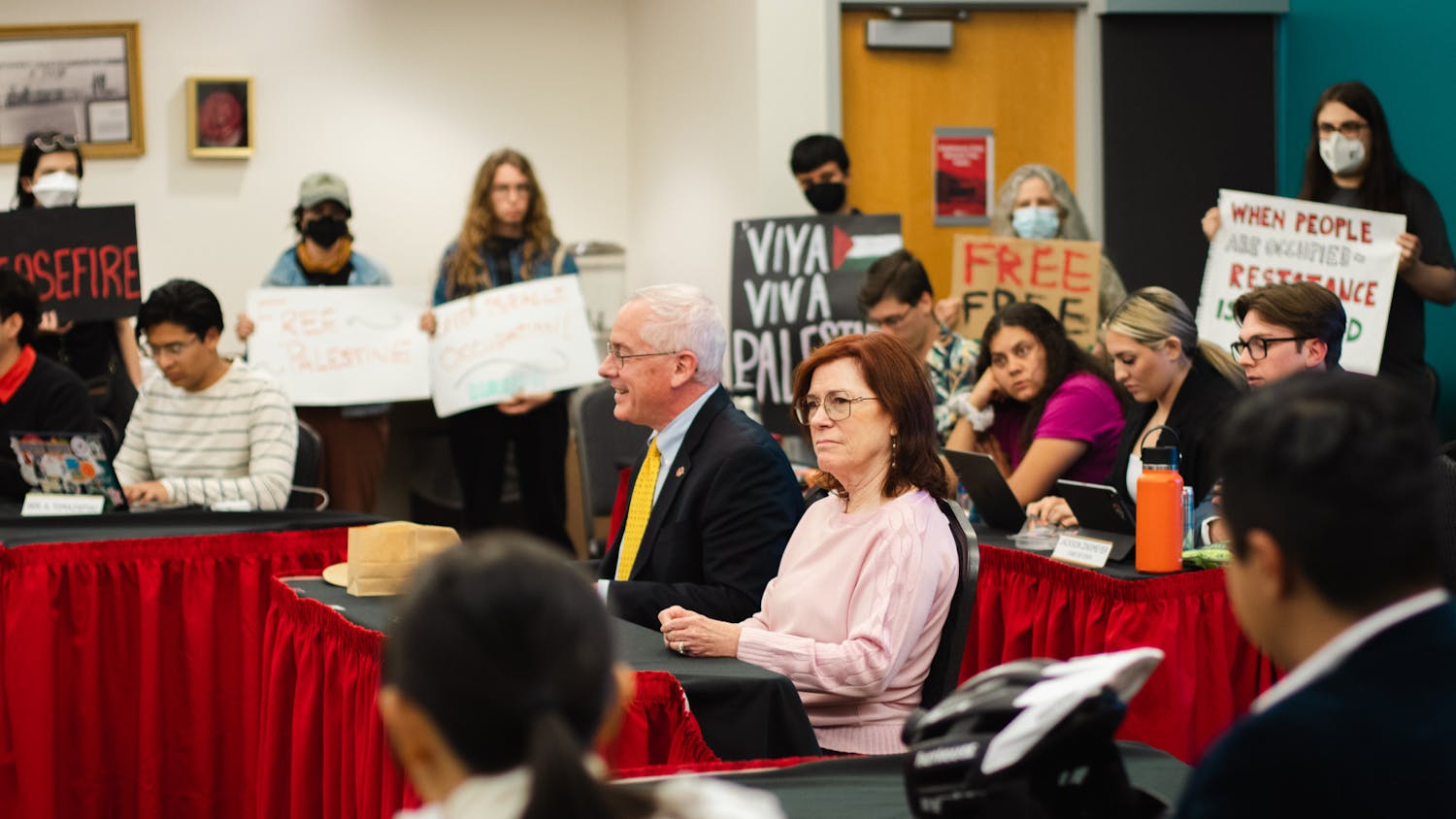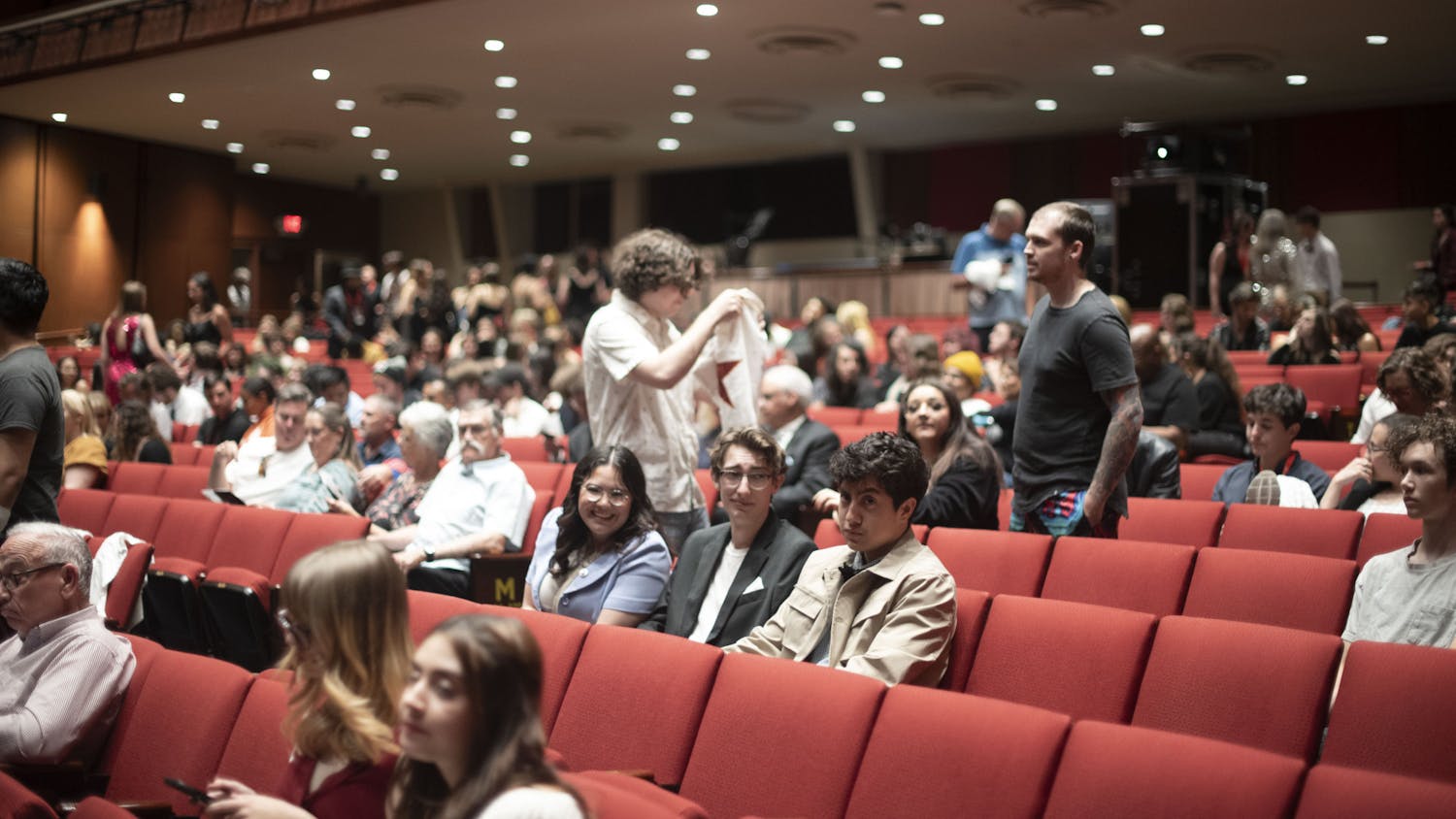Editor's Note: A source for this story is referred to as "Rose" for anonymity.
UNM's Office of Equal Opportunity begins advocacy training this week in order to step up efforts to combat assault on campus, as well as a negative reputation.
Training aims to improve sexual assault and discrimination prevention, focusing specifically on advocacy.
Advocacy training reminds trainees to respect confidentiality and seeks to make the investigation process clearer for everyone involved.
Title IX Coordinator at the Office of Equal Opportunity Heather Cowan said OEO was addressing issues long before the Department of Justice’s investigation, which took a year and half to conduct and another year and a half to present findings.
In response to the DOJ report, an area of the report process that initially took 14 business days has been shortened to five, she said.
Holly Rider-Milkovich, director of Sexual Assault Prevention and Awareness Center at the University of Michigan, works with UNM in advocacy education and training.
Milkovich said that although advocates who work with survivors of sexual assault have the same goals as the institution, strong advocacy may ask for institutional processes to be changed or call policies into question.
An institution can be judged on how it responds to criticism, she said, adding that she admires UNM's proactive response to the Department of Justice investigation, which found UNM's policies, procedures and training regarding sexual assault inefficient.
Some of that inefficiency can be examined in the case of one student who has yet to find closure at OEO.
A case unresolved
Rose is currently attending UNM at a time when her alleged rapist is also still going to school at the University.
Get content from The Daily Lobo delivered to your inbox
Rose said a year after waking up covered in bruises and unsure whether she was drugged or not, she worked up the courage to report that a graduate student and former friend of hers date-raped her off campus in May of 2015.
She signed paperwork for the Office of Equal Opportunity to investigate the crime, she said. After the initial report, she submitted a second report that a friend of the rapist confronted and humiliated her in public at a local bar while the rapist watched from the doorway.
Rose said she continues to feel "terrified" of both the rapist and his friend and worries about running into either of them while she is at UNM or anywhere else in the city.
She said she was initially reluctant to give OEO the alleged rapist's name in fear of retaliation and OEO attempted to find the individual based on the description Rose gave them.
In April 2016, OEO Compliance Specialist Laura Vele Buchs contacted Rose via email saying they had identified a person, who fit the description she gave them based on information she provided.
However, Rose responded saying the identified person was not her alleged rapist, and that was when she realized it was necessary to provide the individual's name to OEO so the wrong person would not be investigated.
Rose provided the office with the alleged rapist's name via email and told OEO she did not want to be involved with the case any further.
In response, Rose said OEO asked her to provide witnesses - specifically mutual friends - that could provide more information about the victim and her alleged rapist’s relationship.
She said she stopped participating in the investigation after this and knows, because she has no evidence, OEO is not able to discipline the alleged rapist.
"I was just trying to do the right thing," Rose said. "I wanted them to put his name in their database and if someone reported him again they would be able to do something.”
She still does not understand OEO's jurisdiction or how it is legally allowed to discipline perpetrators, Rose said, adding she didn't feel comfortable or safe making the report to OEO.
"They didn't give me any reason to trust them," she said.
OEO recommended Rose go to the LoboRespect Advocacy Center, but she said she did not go because she felt uncomfortable having to tell the story again to another person she didn't know.
Institutional betrayal
Milkovich said she educates faculty, staff and students on institutional betrayal, the concept that when individuals reach out to an institution they trust will support them and the institution fails to do so, victims experience a secondary victimization.
Rose said she has not heard from OEO regarding her case since April. Meanwhile the alleged rapist is still attending UNM, as is Rose.
Cowan said while she could not comment on specific cases, she added that a student who files a complaint may request information relevant to that complaint at any time, even if they decide not to participate in the investigation.
OEO has jurisdiction over all matters related to civil rights compliance at UNM, Cowan said, and is allowed to discipline UNM students, staff and faculty.
Cowan said the range of disciplinary actions can vary depending on the allegations and evidence. Severe actions would likely result in suspension or expulsion, she said.
The process
If an alleged victim or perpetrator chooses not to participate in an investigation, OEO limits communication with them as the process is voluntary for both, she said.
“We don’t want to badger anyone or make anyone feel like we are pressuring them to talk to us,” Cowan said.
The office requires at least one meeting with the alleged perpetrator to inform them of their rights, and provides them an opportunity to respond, she said.
If a perpetrator chooses not to respond, OEO informs them that they will continue with the investigation, which may later result in a finding that a policy was violated.
OEO often looks for evidence without the involvement of the alleged victim as well, Cowan said.
While the office does not run background checks on alleged perpetrators, it searches its own database for previous allegations or involvement in other investigations, she said. OEO also checks with UNMPD, the dean of students, human resources and the Provost's Office to see if alleged perpetrators have prior allegations on their records.
OEO takes into consideration previous reports against an alleged perpetrator when determining whether a policy was violated, Cowan said.
“OEO is a neutral, fact-finding office, and both parties of an investigation are asked to provide witnesses and evidence or information they believe may be relevant to their case,” she said.
The office only reports incidences to UNMPD when crimes occur on campus for the purpose of capturing crime stats in the annual safety report, she said.
UNM faculty member Jessamyn Lovell said students should receive information about the process of reporting crimes during freshmen orientation. Although orientation currently provides that information, it’s a bit late for victims who have already had trouble with the reporting process, she said.
Lovell said a history of slow response within an institution could cause victims to react to crimes in ways that are detrimental to the investigation process, such as publicly shaming perpetrators, adding that threats towards physical safety in the college environment is a nationwide problem.





